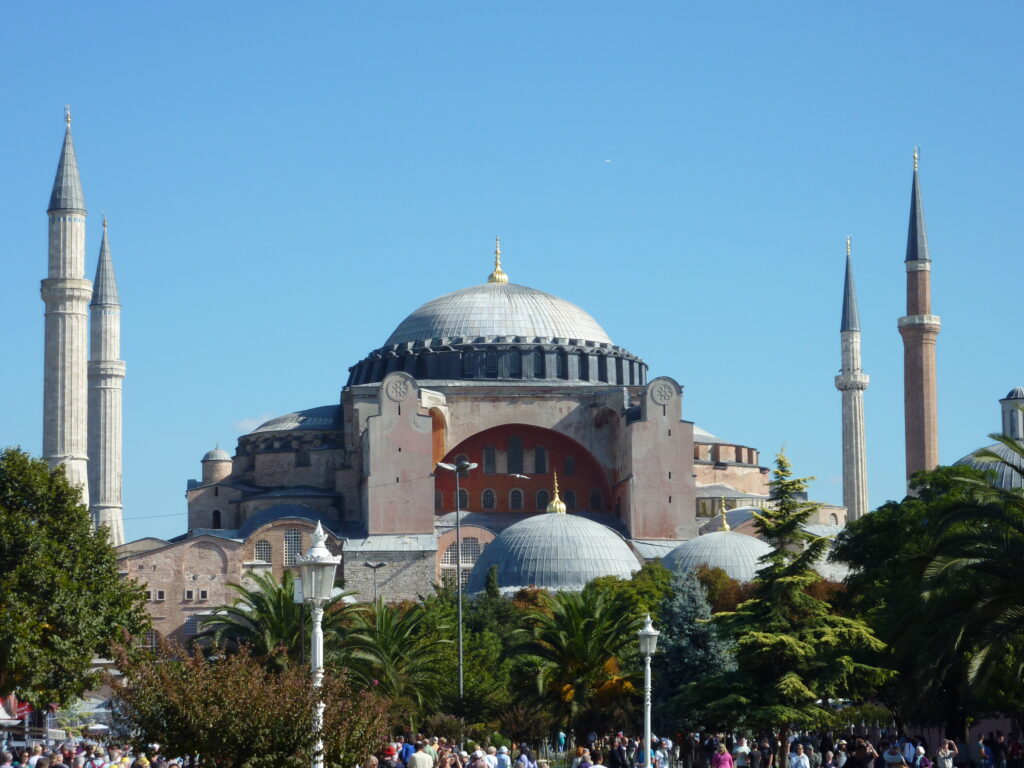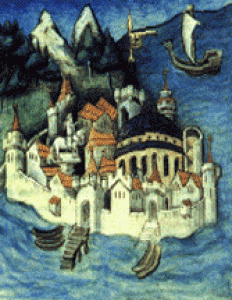
Although Roma arrived in Europe in the Byzantine Empire before the turn of the first millennium, around the beginning of the Xth century, the first European writings concerning Roma only appeared around 1100. In a book on the life of Saint George Mtacmindeli, a Georgian monk from the Iveron monastery on Mt. Athos described “excellent fortune tellers” called Athinganoi or Atzinganoi in Constatinople. In many countries, Roma are known as Tzigan, Zigeuner, Zingari etc., names derived from the word Atzinganoi.

In 1322, the Franciscan Simeon Simeonis met Roma in Crete, in 1348 and 1362, we have writings about Czingarije in Serbia and in Croatia. Roma stayed in the Balkan up to the Turkish invasions.
This by far doesn’t mean that Roma only appeared in the Byzantine Empire around that time. On the contrary, Roma had already been there for quite a while. They most probably arrived in the Balkan, especially in Thrace, before the turn of the first millenium. How they arrived is by far not clear, but the most probable explanation is that they were deported together with the Armenians to those regions following the defeat of the Paulicians by the Byzantine forces. The name they were given, Athinganoi, corresponds to the one of a sect that was often associated, at least during Byzantine times, with the Paulicians.
One has to stress that there are many documents from the XIII and XIV the centuries which may refer to Roma and their presence in various European countries. It is, unfortunately not easy to decide whether this is the case or not. We have chosen to refer to documents from which one can infer they refer to Gypsies. Many experts do think that when Roma arrived in the Balkan and in nearby countries, many of them found work as blacksmiths as well as in other trades, that the autochthonous population needed the Roma workers and their trades. For that reason, most Rrma settled in those countries, built their houses, villages and Rroma quarters (mahalades).
This continued even under Turkish rule. The Ottomans granted Roma workers they needed certain privileges and some Roma even worked for the Turkish irregular troops. These privileges are one of the reasons as why so many Roma now live in the Balkan and in nearby regions such as Romania and Hungary.